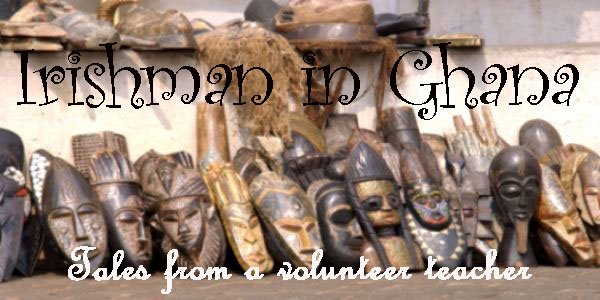 The slave trade carried countless millions (estimates range from 13-16 million over 250-300 year period ending in the mid 1800's) to their deaths on perilous voyages across oceans and plantations. For those who survived initial capture, imprisonment in brutally inhumane conditions, even worse transportation without basic amenities for life, a life full of hard labour and maltreatment faced them. Recently I visited both Cape Coast and Elmina forts on Ghana's coast, former bastions of the Portugese, Dutch and British where they carried out their misdeeds. The tours were excellent and the museums very educational.
The slave trade carried countless millions (estimates range from 13-16 million over 250-300 year period ending in the mid 1800's) to their deaths on perilous voyages across oceans and plantations. For those who survived initial capture, imprisonment in brutally inhumane conditions, even worse transportation without basic amenities for life, a life full of hard labour and maltreatment faced them. Recently I visited both Cape Coast and Elmina forts on Ghana's coast, former bastions of the Portugese, Dutch and British where they carried out their misdeeds. The tours were excellent and the museums very educational.

'Door of No Return' at Cape Coast castle. An unsubtle reminder for those who passed through it during the slave trade era that there was no coming back once you saw this gate. To break this cursed door the bodies of two former slaves were taken back from the US and through these gates, so that it has now become a 'Door of Return'. Local fishermen can be found on the seaside part of the door, unravelling their nets and making a living for themselves. Their new nemeses are foreign trawlers that sweep up the best produce the sea provides through pair-trawling exercises using massive nets.


Elmina fort with a thriving fishing scene in the background. The guided tour at Elmina is excellent, as is the museum. The local historian gives a very insightful picture of how life was for the victims of Elmina's trade masters and soldiers. Similar to Oswiecim (or Auschwitz/Birkenau) in Poland, it is very difficult to imagine the horrors that have taken place at such sites. The preservation of Ghana's history seems to be in good hands both at Elmina and Cape Coast and thousands of school children, descendants of former slaves, foreign tourists converge to learn about how things really were (without the Hollywood dramatisation) and to be challenged to stand up for the downtrodden in today's society upon their departure.

Crocodile looking for prey around Hans Cottage Botel between Kakum and Cape Coast.

This Nigerian journalist we met on our travels got a bit of a shock (as we all did) when the crocodile decided to jump back into the water spilt seconds after this picture was taken.
Kwame Nkrumah was imprisoned at St. James fort under Governor Charles Arden Clarke before becoming Ghana's de facto leader upon release. He had to wait a few more years though before Ghana managed to kick the Brits out totally. This photo is taken from James fort looking towards Ussher's fort and a harbour full of fishermen's pirogues.
Kakum National Park and its famous canopy walk that gives you a great perspective of the surrounding environment


The day before Ghana turned 52 - March 5th, 2009. I have no idea what the symbolism behind the construction is.
It certainly seems that this is the unknown soldier at Independence Square in Accra although there is no plaque or information around the monument.
Kwame Nkrumah Memorial Gardens in Accra - interesting museum, well worth a visit.


Fair Trade pineapples like this one can be found in a huge supermarket in Accra mall on the airport road. Fairtrade bananas are also on sell. They sell at a low price of 80 pesewas, about 20 pesewas cheaper than those sold by street traders. So what is fairer – increase the profit margin of a foreign owned supermarket (Shoprite) and its' bosses by buying an officially 'fairtrade' pineapple or purchase one from your local street trader outside the glamorous mall and help then eke out a living?












No comments:
Post a Comment